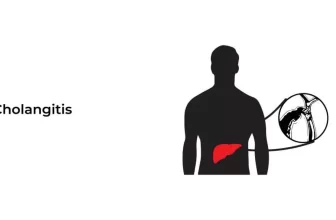Alzheimer’s disease is usual for older people to forget things, but if their memory is deteriorating, they may have Alzheimer’s disease. This condition is one of the common and significant causes of memory loss in people over 65. Alzheimer’s disease includes disturbed thinking patterns, forgetting things, feeling blank, and many other signs. In this article, we will answer the following questions;
- What is Alzheimer’s disease?
- Who and how did he discover this disease?
- What are the causes and signs of this illness?
- Is it treatable and preventable or not?
Who discovered Alzheimer’s?
Alzheimer Alos was a German psychiatrist and neuropathologist who discovered this disease. He encountered a woman who was suffering from this condition. He looked into her symptoms but couldn’t find out what ailment she had. It contained symptoms such as:
- Sleep disturbances
- Memory loss
- Dementia
- Feeling blank
- Hallucination and so on.
Alzheimer Alos studied her brain when she died after five years at the age of 55. He discovered that her brain tissues had been injured by specific enlarged lesions such as plaque, and her neurofibrillary muscle fibers had been screwed together. Plaque is formed when a protein called ‘beta-amyloid’ clumps together to block space between nerve cells and, in some cases, inside the cell. Resultantly, the regular functioning of cells is disrupted. Here, the question is; how can plaque influence memory? This plaque between nerve cells produces a substance that breaks down the neurotransmitter acetylcholine.
Plaques release a substance that causes brain cells to die. Based on his research, Alzheimer established the root cause and presented findings and documentary evidence on Auguste D before a meeting of German psychiatrists in 1906.
Symptoms
The signs and symptoms of Alzheimer’s disease differ from person to person. However, common symptoms include:
- Difficulty performing daily duties
- Spatial issues
- Forgetting things
- Difficulty communicating the ideas due to memory loss
- Inability to make decisions
- Mild cognitive impairment
- Confusion
- Disrupted sleeping pattern
- Repeatedly asking the same questions
Mild cognitive impairment (MCI) is similar to Alzheimer’s disease, but this condition is more severe than MCI. Although not every MCI patient will get Alzheimer’s disease in their later years, it can sometimes progress to Alzheimer’s. MCI is a condition that affects the elderly and causes memory and sensation loss, such as smell. It also causes dementia and Alzheimer disease in most instances, but not all. MCI has the exact causes of Alzheimer’s, i.e., genetics.
Causes
Scientists are still unsure what causes Alzheimer’s disease; however, it is widely accepted that genetics and age factors have a role in the development of the disease. Memory loss and other symptoms are caused by plaque formation in brain cells, which damages them and depletes neurotransmitters like ACH. An autopsy of multiple Alzheimer’s patients revealed that protein accumulation is the cause of the disease that can form on the surface of nerve cells or within them. More specifically, plaques are protein deposits that form around nerve cells, and tangles are protein deposits that form inside nerve cells.
It affects the brain’s structure and functioning by disturbing the gyri and sulci. Plaque and tangles in the brain structure are not the problems, But their position in the wrong part of the brain creates Alzheimer’s disease.
Risk Factors
Although the risk factors of Alzheimer’s disease are still unknown, doctors and scientists have agreed on a few risk factors, such as;
- Genetics: Alzheimer’s disease is more common in people who have a family history of the disease. According to scientists, APOE 4 and deterministic genes cause Alzheimer’s disease. More specifically, if a person’s APOE 4 gene is altered, they are more likely to acquire Alzheimer’s disease.
- Age: Alzheimer’s disease is mainly diagnosed in adults over 60. Ethnicity and age (both) are the factors of Alzheimer’s disease since research has revealed that white people, particularly Americans, are more susceptible to the disease. This condition affects over 6 million people in the United States alone. Hispanics, like Americans, are more susceptible to Alzheimer’s disease.
- Lifestyle: Head injuries can sometimes lead to Alzheimer’s and other forms of dementia; therefore, you must avoid situations where you might get a head injury. Older persons, in particular, should exercise extreme caution as aging is already a significant factor. Elderly adults can avoid Alzheimer’s disease by living a healthy lifestyle such as eating well, sleeping well, and exercising. It is also strongly advised to abstain from consuming alcohol.
- Heart problems: Damage to brain cells can also be caused by heart problems. When the heart cannot provide enough blood to brain cells, it causes brain cell death. It can potentially cause or exacerbate the problem caused by plaque or tangles. Older adults have high blood pressure or cholesterol, so monitoring their heart’s condition is critical. Just follow your doctor’s recommendations and try your best to maintain good cardiovascular health.
Is Alzheimer’s curable?
Although scientists have yet to discover a cure for Alzheimer’s, certain medications can help with the symptoms. Therapies can also help you perform better in your daily responsibilities. Moreover, professionals assist patients in improving their health and learning to live with their disease.
References
- https://www.verywellhealth.com/alzheimers-disease-causes-98799
- https://www.nia.nih.gov/health/what-alzheimers-disease
- https://www.verywellhealth.com/who-was-alois-alzheimer-how-was-alzheimers-disease-discovered-3858664
- https://www.verywellhealth.com/the-alzheimers-brain-97675
- https://www.nhs.uk/conditions/alzheimers-disease/treatment/







